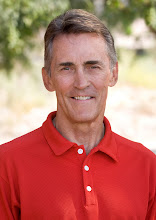Answers for an 8th grade student
Last week I received a letter from an 8th grade student in Los Angeles who had some questions about triathlon. With all of the talk about childhood obesity and too much time in front of electronic media it's great too see an interest in something as healthy as triathlon. The following is my reply.
Thanks for your recent letter, Camille. You asked some very good questions. Here are my answers.
Q: Which segment is the hardest, swimming, cycling, or running?
A: It depends on who the athlete is. Whichever event one is weakest at is usually considered the hardest. If the athlete is equally strong in each sport then it often comes down to the one in which he or she believes offers the most opportunity for a good overall race performance. So they may work harder in this leg of the race to gain an advantage. That is often the bike since it makes up about half of a triathlon. But many other triathletes would say that the run is the hardest even if they are good runners simply because there is a lot of accumulated fatigue by the time it starts. So there really is no consensus on which is the hardest.
Q: When did you first become interested in triathlons, and why?
A: In 1983 I had surgery for an ankle I had sprained many times while running. Since I couldn’t run for a few weeks I started riding my bike. I had done this often when injured in the past and had become a fairly good cyclist. A couple of weeks or so after the surgery I was riding my bike in the mountains outside my home in Colorado when I crashed. I injured a shoulder pretty badly. My doctor suggested that swimming would help it to rehabilitate. A couple of weeks later I was swimming and it occurred to me that I was swimming, cycling and running, and I was aware of this new sport called “triathlon.” So I decided to enter one. I was hooked. Once again I found that the worst things often turn out to be the best.
Q: What helps you get your energy up when you are at a rough part of the race?
A: There are two things that you get you through the “hard patches.” The first is training. To do well in triathlon, as in any sport, you have to train for the hardest portions of the race. These often occur in the latter stages of the race when fatigue is setting in. Training should prepare you to minimize the feelings of fatigue. The second part of the answer has to do with mental preparation. We don’t always have races where everything goes to plan and we feel great all the way. In fact, that is rare even when we are well-trained. In such situations the athlete must be mentally prepared. Essentially, that means he or she has developed the mental strength to keep moving forward even if it isn’t their best effort. Something that helps with continuing ahead is knowing that these bad patches don’t always last the remainder of the race. They usually come and go as the race progresses. So at the end of the current bad patch there will be a good one. Be patient and things will get better.
Q: What inspired you to get into triathlons?
A: As far back as I can remember in grade school I was interested in sport. I have always loved the challenges of competition. Later in life I learned that competition is about becoming the best person you can be. I also learned that my competitors are the ones who do the most to make me a better person. I am competing with them, not against them. Without their efforts there would be no satisfaction and little gained in sport.
Q: What is your favorite part of triathlons?
A: This probably isn’t what you were getting at, but my favorite part is seeing the athletes I coach achieve – and even exceed – their performance goals. Having helped someone accomplish something that only a few weeks before was little more than a dream is very rewarding.
Q: What was the best race that you have ever done, and why?
A: I have had many races where first place in my category came down to me and one other athlete with whom I was racing shoulder-to-shoulder. There have been a half dozen or so of these for me. Some I won. Some I lost. But in either case the competition was intense and the lasting memory vivid. Races in which I have won my category easily are soon forgotten. And those in which I was not a contender faded quickly from memory. But for those that were tight and I was at my limit I can recall every detail of the experience. It’s remarkable how clear the memory is of such races.
You said that your mother and you had an interest in triathlon but you didn’t mention if you are both doing them. If not, I hope you decide to take the plunge. It’s a great sport with a lot to offer for people of all ages and abilities. If you do, please let me know. I hope to see you at a race one day.
Joe Friel

